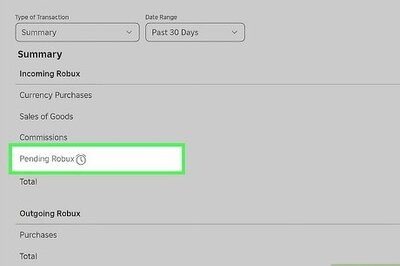
views
Greece is one of the 19 countries in the eurozone who share the euro and allow goods and services to cross borders without having to change countries. The Greek debt crisis that has rumbled on for six years could culminate in the country's exit from the eurozone.
With an overwhelming 'No' vote, Greece on July 6 clearly showed that it is against the terms of a European bailout. With this decision, there are chances of the country's exit from the European Union. Amid such fears, eurozone leaders will be meeting on Monday to discuss the future course of action.
According to the Washington post, Greece's exit from the euro would mean that banks will become insolvent overnight, the economy’s productivity would drop drastically and hyperinflation would explode. It is also expected that social unrest would likely erupt with borders being closed to stop hard currency fleeing. The price of imports are likely to rise immensely too.
A political turmoil may also ensue as both the far left and far right wings would feel strengthened as they had endorsed the 'no' vote. Leftwingers in Syriza, trade unions and workers’ associations, backed by the anti-capitalist Antarsya, have long advocated a split from the EU and the write-off of Greece’s monumental debt.
An exit from the 19-member country team which trades in the euro would initiate a move that may lead towards its exit from the EU. According to a report in the Washington Post, some claim that Greece would quickly become a third-division Balkan state. With the exit, it is being predicted that the rich would prosper while the poor would be hard hit by hyperinflation.
Greece joined the eurozone in 2001. In 2009, the Papandreou government claimed that the national public deficit was nearly three times more than accounted for. Thereafter in 2010, Athens appealed for financial aid from the European Union and the International Monetary Fund to recover from its losses. With this aid, Greece becomes the first eurozone country to receive a bailout amounting to 110 billion euro in exchange for painful austerity measures.
In 2012, Greece received a second bailout of 130 billion euro. By 2015, the national output was reduced by 25 per cent, salaries fell even more and a quarter of workforce remained unemployed.
Anti-austerity Syriza party, led by Alexis Tsipras won the elections in Greece on January 25, 2015 and pledged to renegotiate the bailout terms.
On June 5, Tsipras rejected creditor demands for pension cuts and labour market reforms while a few days later on June 17, in a first, Greek central bank warned of Grexit if it fails to reach a bailout deal.
Tsipras called for a surprise on July 5 referendum on bailout proposals even as the eurozone finance ministers refuse to extend bailout past June 30. As the bailout officially expired, Greece defaulted on a 1.5 billion euro debt payment to the IMF.
The 28-countries presently in the eurozone including the 19 countries who share euro as the official currency are:
Belgium (entered EU in 1958)
Bulgaria (entered EU in 2007)
Croatia (entered EU in 2013)
Cyprus (entered EU in 2004)
Czech Republic (entered EU in 2004)
Denmark (entered EU in 1973)
Estonia (entered EU in 2004)
Finland (entered EU in 1995)
France (entered EU in 1958)
Germany (entered EU in 1958)
Greece (entered EU in 1981)
Hungary (entered EU in 2004)
Ireland (entered EU in 1973)
Italy (entered EU in 1958)
Latvia (entered EU in 2004)
Lithuania (entered EU in 2004)
Luxembourg (entered EU in 1958)
Malta (entered EU in 2004)
Netherlands (entered EU in 1958)
Poland (entered EU in 2004)
Portugal (entered EU in 1986)
Romania (entered EU in 2007)
Slovakia (entered EU in 2004)
Slovenia (entered EU in 2004)
Spain (entered EU in 1986)
Sweden (entered EU in 1995)
United Kingdom (entered EU in 1973)


















Comments
0 comment